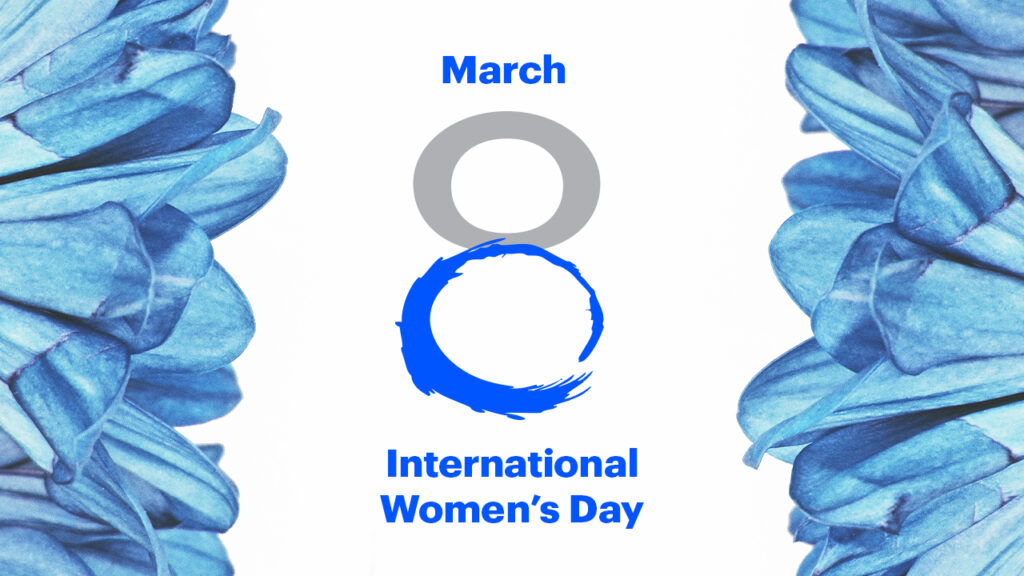
Wednesday, March 8 is International Women’s Day (IWD), recognized around the world. IWD asks us to imagine a gender equal world. One that is free from bias, stereotypes, and discrimination. A world that’s diverse, equitable, and inclusive. A world where difference is valued and celebrated. The theme for 2023 is #EmbraceEquity and calls upon us to celebrate women’s achievements, raise awareness about discrimination and take action to drive gender parity globally.
JDRF is proud to celebrate the achievements of the Canadian women researchers who have blazed a trail in the field of type 1 diabetes (T1D) – both making life better, safer and easier for the millions affected by the disease, but also for all the women scientists who came after them.
From Dr. Priscilla White, an early pioneer in diabetes research and treatment, Dr. Dorothy C. Hodgkin who discovered the three-dimensional structure of insulin, Dr. Helen M. Free, who along with her husband created Clinistix, allowing people to check their glucose at home – to the mothers who helped found JDRF, women have played a critical and essential role in advancing our understanding of T1D.
Meet these women researchers whose work is helping to improve the lives of people affected by T1D today, while getting us closer to cures tomorrow:
Dr. Diane Wherrett – accelerating screening for T1D prevention. Dr. Diane Wherrett is currently a Staff Physician in the Division of Endocrinology, Department of Paediatrics, and a Professor at the University of Toronto at SickKids. She is the Centre Director for the Canadian arm of the TrialNet screening program, a NIH-funded multicentre T1D clinical trial group.
TrialNet offers risk screening for relatives of people living with T1D, and innovative clinical studies testing ways to slow down and prevent disease progression.
Dr. Despoina Manousaki, helping to create genetic risk scores for T1D. Dr Manousaki’s research focuses on the genetics of complex disease in childhood. Her team uses genomics, bioinformatics, and genetic epidemiology methods to better understand the genetic architecture of complex disease, and to apply these findings in translational research.
Her research program focuses on the genetics of type 1 and type 2 diabetes in children and is expanding existing genetic risk scores for T1D calculated from predominantly European-ancestry datasets, to include African, Indian, Latino, and Asian ancestries for a more diverse picture of T1D genetics.
Dr. Megan Levings – helping to find a better understanding of T1D immunology.
Dr. Megan Levings, of the University of British Columbia and BC Children’s Hospital Research Institute is one of Canada’s leading immunologists. She holds two JDRF grants: one examines samples from the ustekinumab (a disease-modifying drug) clinical trial to understand how the drug works in people with T1D. The hope is that ustekinumab (brand name Stelara) can block immune cells soon after the development of diabetes to protect and regenerate any remaining insulin-producing cells. This would ideally lead to the remaining beta cells producing enough insulin so that people with T1D would require less external insulin for a longer period, or not at all.
The other is a CIHR-JDRF grant that is examining the role of regulatory immune cells to apply novel approaches to the development of cellular therapies to cure the disease.
Dr. Christine Nostro – forging new pathways in stem cell research for T1D.
Islet transplantation could help T1D patients regain control of blood glucose levels, making this an alternative to insulin injections as the only existing treatment. However – donor scarcity, poor islet survival after transplant, the need to optimize the transplant site and for life-long immunosuppressive treatment to prevent transplant rejection mean this treatment is only accessible to a handful of people with T1D.
Dr. Nostro’s team leverages their expertise in stem cell biology, vascular biology, islet transplantation and beta cell biology to address these challenges and are working to develop a safe and effective clinical-grade product for therapy.
The outcome from these studies will accelerate universal stem cell based T1D therapies.
Dr. Tricia Tang – making mental health support for T1D more accessible.
Dr. Tricia Tang is an Associate Professor in the Department of Medicine, Division of Endocrinology at the University of British Columbia Faculty of Medicine. She is also a behavioral scientist and registered clinical psychologist with an expertise in diabetes research in high-risk and medically underserved populations. Over the past 22 years, she has focused on developing, implementing, and evaluating low-cost and sustainable peer support models for improving long-term diabetes-related health outcomes.
Dr. Tang seeks to use digital health strategies and peer support models to close the mental health care gap for people with T1D.
Dr. Tang’s research goal is to design and evaluate a virtual care platform (REACHOUT) for highly trained peer supporters to deliver psychosocial support to adults with T1D living in rural and remote communities of interior British Columbia.
She is also the co-chair of JDRF’s Mental Health + Diabetes steering committee, helping to develop a training program for mental healthcare professionals to better serve their patients with T1D.
Dr. Shazhan Amed – developing new projects that aim to equitably improve outcomes for children with diabetes.
Dr. Shazhan Amed is a pediatric doctor who works at BC Children’s Hospital in Vancouver. Her areas of care are children and youth with diabetes. She is particularly interested in improving the quality of care provided to children with diabetes, as well as preventing childhood obesity and childhood onset type 2 diabetes.
Her team has developed the CAnadian PediAtric diabetes ConsortIum (CAPACIty), a network of 15 childhood diabetes centers from across Canada, with the collaborative goal of improving outcomes for all children with diabetes, particularly those from marginalized or lower-income communities.
To read more about other JDRF-funded researchers: www.breakthrought1d.ca/research/meet-our-researchers/
JDRF Canada – an all-women research department.
Chief Scientific Officer Dr. Sarah Linklater, along with her team Dr. Lara Green, Katie Ryan, and Dr. Anne Marie MacDonald (currently on maternity leave), use their science backgrounds and passion for accelerating type 1 diabetes research – that also may benefit other autoimmune diseases – to help JDRF determine the most promising research to fund. JDRF is so grateful for their efforts that are bringing us closer to our goal of a world free from T1D.



